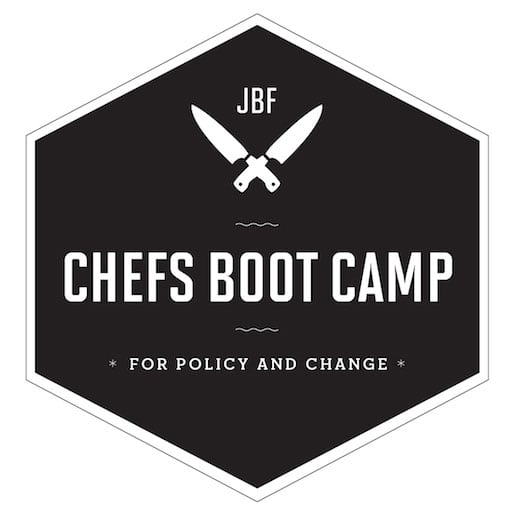
August 25, 2018; Food & Wine
The mission of the James Beard Foundation (JBF) is “to celebrate, nurture, and honor chefs and other leaders making America’s food culture more delicious, diverse, and sustainable for everyone.” So, how does advocacy fit into that mission? As it turns out, to create sustainable food, you need federal policies to support that goal, and chefs, of course, have a natural affinity for food issues.
As an example, the $428-billion federal Farm Bill is up for renewal at the end of September. In June, the House passed a Farm Bill with new work requirements for food stamp recipients. The Senate’s bill had no new work conditions; it does limit payments to farmers, though, and it legalizes growing hemp as an agricultural crop by removing it from the Controlled Substances Act. This includes growing hemp to make CBD oil, a substance many use to relieve pain and for other medicinal purposes. Surprisingly, the hemp legalization is one of the least controversial aspects of the bill, even though the House version does not include it.
How is the food industry reacting? The James Beard Foundation (JBF) is sponsoring its Chef’s Boot Camp with the Farm Bill in mind. Katherine Miller, the James Beard Foundation’s VP, says,
Now, while Congress is negotiating changes to the Farm Bill, which is set to expire on September 30th, it is imperative that these leaders are informed and mobilized to amplify the voices of farmers, veterans, conservationists, and children. The Farm Bill sets America’s food and farm policies for the next five years. Together with the hundreds of chefs who’ve been through Boot Camp before, this class of leaders will help.
Sign up for our free newsletters
Subscribe to NPQ's newsletters to have our top stories delivered directly to your inbox.
By signing up, you agree to our privacy policy and terms of use, and to receive messages from NPQ and our partners.
This year, with the support of the Osprey Foundation, the Carl M. Freeman Foundation in Memory of chef Matt Haley, and the Enelow Fund, the JBF is hosting the 16th Chefs Boot Camp for Policy and Change from September 9–11, 2018, at Shelburne Farms in Burlington, Vermont. The JBF program focuses on creating a sustainable, fair farm policy. Topics will include:
- Why Chefs Voices Matter – What is advocacy, why we do it, how we do it, and what to expect from policy; engaging chefs on food-system issues.
- How Policy Happens – Overview of policy change at local, state, and federal levels, illustrated using food waste as an example of a pressing policy issue.
- A is for Advocacy – Why we need campaigns, how they work, and how to build them.
This program should go far to overcoming any fears of advocacy.
The Foundation has been sponsoring impact summits for the last four years, focused on issues as varied as table conversations on the impact of genetically modified organisms on the food industry, and, in partnership with the Natural Resource Defense Council (NRDC), a summit about reducing food waste in landfills. (NPQ reported on this serious issue recently in “For-Profit and Nonprofit Firms Devise Creative Ways to Reduce Food Waste.”) Seeing a need to “inspire current and future generations of culinary students to minimize waste, and maximize use of ingredients,” and with help from the Rockefeller Foundation, they have created a new food waste reduction curriculum for colleges and universities.
Recent #MeToo reports about sexual harassment demonstrate the difficulties women in the food industry face, compounded by the glaring gender disparity in “culinary leadership.” NPR recently reported that women “struggle to advance within restaurant kitchens and can find it next to impossible to find funding to open their own restaurants,” while DataUSA says that less than 22 percent of chefs and head cooks are female, and while men make an average of $34,523, women earn only $28,316. To address this imbalance, JBF has created two programs: The Women Entrepreneurial Leadership (WEL) program, with its focus on increasing female entrepreneurs and restaurant owners, and the Women in Culinary Leadership program, with its emphasis on women at the “start of their careers.” For these programs, JBF reached to find support from Audi, as well as restaurateur Rohini Dey, EDENS‘ CEO Jodie W. McLean, and WCR (Women Chefs and Restaurateurs). The Foundation’s WEL program is about increasing ownership and building a network of female leaders, who can support each other as they launch themselves in a challenging environment.
CEO Clare Reichenbach told Food & Wine, “if you get more women running big restaurant groups, that will help with that watershed moment. That will shift the culture.”—Ann Lehman













